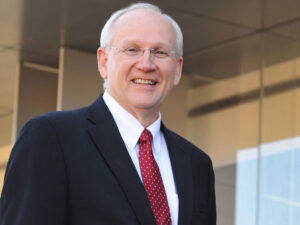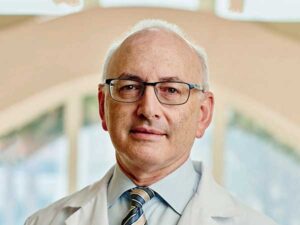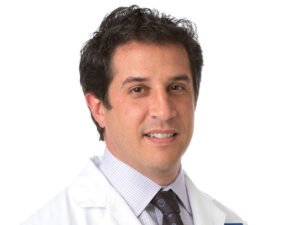Raymond N. DuBois was named director of MUSC Hollings Cancer Center effective Aug. 17.
A UC Davis cancer researcher was arrested July 24 on visa fraud charges.
Stephen Nimer: Cancer patients are coming in for treatment, Florida’s COVID-19 spike notwithstanding
“Our chemotherapy and radiation therapy volumes have been very robust. Probably because of the NCI designation, we are seeing significantly more patients than last year,” Stephen D. Nimer, director of Sylvester Comprehensive Cancer Center, said to The Cancer Letter. “Compared to last year, we seem to be up about 15%. We’ve been growing by about 8% to 9% for quite some years. This year is even more.”
The past two decades have brought hope to myeloma patients, as the majority benefit from the significant advances in chemotherapy.
“It's the prices, stupid,” Uwe E. Reinhardt and authors famously wrote in their 2003 article describing the cause of high health care spending in the United States.1 Since then, multiple large analyses have confirmed that the prices of labor and goods, including pharmaceuticals and administrative costs, more so than differences in utilization, are the primary drivers of high health care spending.2,3
It is obvious to virtually everyone in the United States that the numbers of patients affected with COVID-19 are continuing to escalate. The impact of this is obvious, with many patients dying or permanently damaged from this dangerous virus.
Adjusting to the pandemic, NCI has developed shortcuts in the conduct of clinical trials that could make it easier to conduct clinical trials, NCI Principal Deputy Director Douglas Lowy said at the virtual meeting of the American Association for Cancer Research on COVID-19 and Cancer.
In the afternoon of July 22, the American Cancer Society instructed the staff of its National Home Office to pick up their belongings and equipment before July 30.
If non-profit organizations are unable to make good on their commitments to trainees, NCI is prepared to fill that gap, NCI Director Ned Sharpless said during a July 22 virtual meeting of the American Association for Cancer Research on COVID-19 and Cancer.
Jason M. Hafron, director of research at the Michigan Institute of Urology, was taken aback by the results of a study he was conducting: the vast majority of patients with prostate cancer who need regular injections to suppress their testosterone levels didn't get treated on time.















